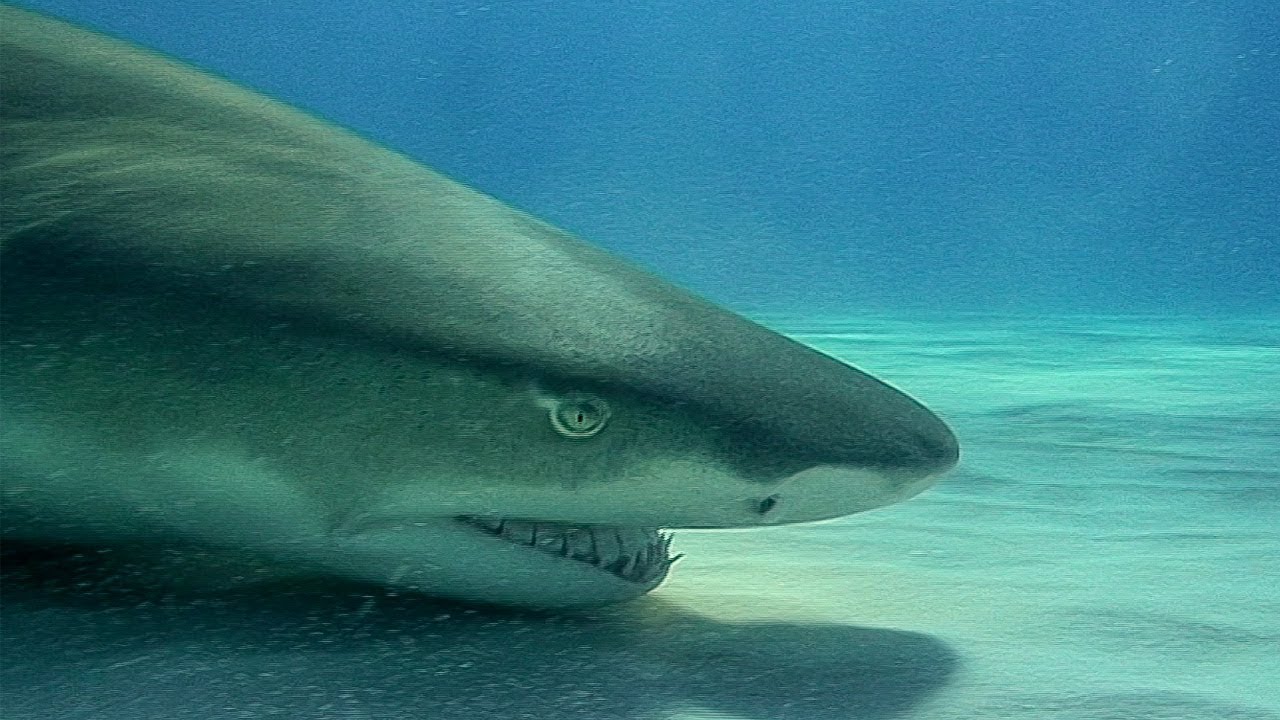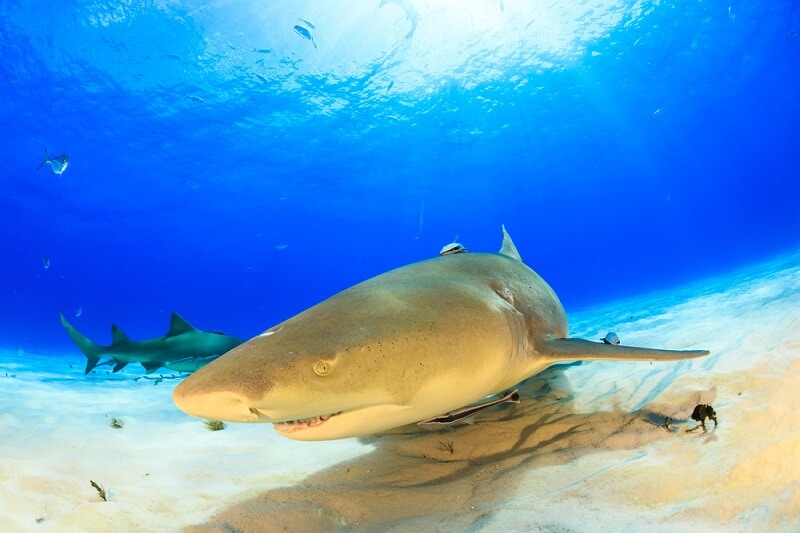Fisherman Attacked By Shark And Dragged Into Water In Terrifying Incident
One fisherman had a hair-raising experience while washing his hands after making a catch in the Florida Everglades. The incident, captured in a video uploaded by fishing guide Capt. Mark Gore, showcases the terrifying moment when the fisherman attacked by shark and dragged into water.
Author:Morgan MaverickReviewer:Professor JhizJun 30, 20231K Shares69.8K Views

One fisherman had a hair-raising experience while washing his hands after making a catch in the Florida Everglades. The incident, captured in a video uploaded by fishing guide Capt. Mark Gore, showcases the terrifying moment when the fisherman attacked by shark and dragged into water.
Fisherman Attacked By Shark And Dragged Into Water

WATCH: Florida fisherman bitten by shark, pulled overboard in the Everglades
The video footage revealed the fisherman, identified as Nick, rinsing off his hands over the side of the boat when the shark struck. Despite the shark not appearing particularly large, its force was enough to throw Nick off balance and send him tumbling into the water.
The exact species of shark involved in the incident remains uncertain, though the Instagram post accompanying the video suggested it could have been a Lemon Shark. However, the Everglades are known to be home to Bull Sharks, considered one of the most aggressive shark species towards humans.
Sharks are drawn to splashing as they associate it with distressed prey, making it a risky behavior to engage in while in murky waters.
The proximity of fishing boats also attracts sharks, as they associate them with an easy source of food. These factors combined may have contributed to the shark's sudden attack on Nick as he washed his hands.
Fortunately, the quick reflexes of the other fishermen on the boat allowed them to swiftly pull Nick back on board. The shark appeared to release its grip on his hand after just a moment. Reflecting on the incident, the caption accompanying the video post expressed the fisherman's shock and emphasized the importance of avoiding such situations in the future.
“„Release a fish, rinse off my mitts, shake it out. For me, this post-catch ritual is nearly instinctual at this point. Many of you probably do the same, not thinking twice about it. Never again.- Instagram Caption
“„Today was one of the scariest days on the water I have ever had. It started off great and we were crushing the fish, but the sharks were eating some, despite our best efforts. After releasing a snook, Nick washed his hands in the water and was immediately bit by a large [lemon] shark. There was no chum or blood in the water, and the sharks were unprovoked. The sharks are no joke in the Everglades, and the warnings about keeping your hands out of the water are not an exaggeration.- Instagram Caption
While Lemon sharks are generally not aggressive towards humans, the combination of splashing sounds from hand washing and the act of releasing fish from the boat could have triggered a mistaken identity, with the shark perceiving the splashing as potential food.
Although Lemon sharks have never been attributed to a fatal attack, the same cannot be said for Bull sharks, which also inhabit the Everglades. In addition to sharks, the Everglades are also home to alligators, further adding to the hazards of these waters.
This incident serves as a chilling reminder of the potential dangers lurking beneath the surface in the saltwater Everglades of Florida. It underscores the importance of exercising caution and following safety guidelines while engaging in activities such as fishing in these areas. Understanding the behaviors and habitats of the local wildlife can help minimize the risks associated with encounters with creatures like sharks and alligators.
Lemon Shark Facts
| Lemon Shark | Facts |
| Skin Color | Distinctive yellow |
| Diet | Bony fish, crustaceans, stingrays, occasional seabirds, and smaller sharks |
| Average Size | Up to 10 feet (3 meters) |
| Retinal Feature | Specialized "visual streak" for enhanced underwater vision |
| Habitat | Shallow coastal waters, coral keys, and mangrove forests |
| Social Behavior | Group feeding at dawn and dusk, often in congregations of up to 20 individuals |
| Resting Behavior | Resting on the seabed, utilizing small fish for parasite cleaning |
| Reproduction | Viviparous, giving birth to live young after a gestation period of up to 12 months |
| Litter Size | Up to 17 pups per litter |
| Conservation Status | Listed as "Near Threatened" by the IUCN Red List |
Renowned for its striking yellow skin, the lemon shark is a captivating species that inhabits coral keys and mangrove forests within the Atlantic Ocean and certain regions of the Pacific.
With its robust build and unique physical characteristics, this shark has established itself as a formidable predator in underwater ecosystems. However, its very allure has made it a lucrative target for commercial fishers seeking to profit from the trade of its fins and meat, endangering its survival in the wild.
Physical Adaptations And Predatory Abilities
The lemon shark's distinct yellow skin serves as both an aesthetic wonder and an effective camouflage against the sandy surroundings of its preferred habitats. Its stocky body structure, along with its flattened head and short snout, endow it with remarkable agility and maneuverability, allowing it to excel in hunting bony fish, crustaceans, and stingrays.
The lemon shark's versatile palate extends beyond its primary prey, as occasional observations have documented it consuming seabirds and smaller shark species. With an adult length that can reach up to 10 feet, the lemon shark is considered one of the larger species among its aquatic counterparts.
Notably, its retina possesses a specialized "visual streak," a horizontal band that enhances its ability to perceive intricate details and vibrant colors underwater.
Habitat And Behavioral Patterns
Lemon sharks predominantly inhabit shallow coastal waters, although their adventurous nature occasionally leads them to explore freshwater environments or embark on long-distance migrations across the open ocean. Despite their propensity for exploration, lemon sharks tend to establish well-defined home ranges, often congregating in groups of up to 20 individuals during feeding frenzies that coincide with the twilight hours of dawn and dusk.
During the day, they exhibit an intriguing behavior where they rest on the seabed, utilizing the assistance of small fish that clean parasites from their bodies. However, this behavior necessitates the continuous pumping of water over their gills, resulting in higher energy consumption compared to swimming.
Reproductive Strategies And Life Cycle
Unlike many other shark species, lemon sharks are viviparous, meaning they give birth to live young instead of laying eggs. The females carry developing embryos internally for an extended period of up to 12 months. When the time for birth approaches, the pregnant females seek refuge in shallow nursery areas, typically during the spring or summer seasons.
Litters of lemon sharks can consist of as many as 17 pups. Within these nurseries, the young sharks find protection from larger predators and access nourishment from the nearby mangrove ecosystems. Lemon sharks reach sexual maturity around the age of 6 and have an average lifespan of up to 27 years.
Conservation Challenges And The Road Ahead
The lemon shark faces significant threats due to the relentless pursuit by commercial fishers and recreational anglers. The demand for its fins and meat fuels intensive fishing practices that jeopardize its population. Moreover, the shark's robust skin, ideal for leather production, adds to its allure in the globalmarket.
As a result, the International Union for Conservation of Nature (IUCN) classifies the lemon shark as "Near Threatened." To ensure the survival of this magnificent species, it is imperative to implement conservation measures that address overfishing, habitat degradation, and the preservation of critical nursery areas.
The lemon shark's distinctive appearance and remarkable predatory abilities have captivated the imagination of marine enthusiasts worldwide. Yet, its future hangs in the balance due to unrelenting fishing pressures.
By raising awareness, implementing sustainable fishing practices, and safeguarding critical habitats, we can help secure the survival of the lemon shark for generations to come, allowing this awe-inspiring predator to continue its vital role in maintaining the delicate equilibrium of our oceans.

Facts: The Lemon Shark
Are Lemon Sharks Aggressive?
Lemon sharks are not considered aggressive sharks. Despite their formidable size and intimidating appearance, humans are not typically on their menu. This is a reassuring fact, given the power and size of these aquatic predators. Lemon sharks generally grow to be between 8 and 10 feet long and can weigh up to 400 pounds, surpassing the weight of an adult female bear.
While lemon sharks are generally peaceful, they have the potential to cause significant harm to humans. With sharp teeth and superior swimming abilities underwater, these sharks can inflict damage if provoked or cornered. However, encounters with lemon sharks underwater are usually harmless. They may swim around divers out of curiosity without displaying aggressive behavior. It is important to note that provoking or attacking a lemon shark could trigger a defensive response, potentially leading to an attack.
In the rare instances when a lemon shark does attack a human, it may bite and cause injuries with its sharp teeth. Although lemon sharks do not typically bite to consume human flesh, their bites can leave scars and wounds.
According to the International Shark Attack File, there have been 10 recorded unprovoked attacks by lemon sharks on humans, none of which were fatal. These incidents occurred in the Caribbean and Florida, regions known for their picturesque coastlines and high beach population.
Increased human presence in coastal waters can elevate the chances of encountering a shark.
Lemon sharks are naturally sociable creatures, often moving in groups and displaying various social behaviors among their own kind. Their relatively large brain size, in proportion to their body size, contributes to their social nature. Lemon sharks exhibit curiosity rather than agitation when encountering divers.
Due to their docile disposition and manageable size, lemon sharks can be kept in aquariums. Some notable aquariums housing lemon sharks include the Odysea Aquarium, National Marine Aquarium, and Guadalajara Zoo in Mexico. In captivity, lemon sharks can live up to 27 years.
These migratory sharks inhabit tropical waters, occasionally venturing into the open ocean. While they can also be found in rivers, their range does not extend as far inland as that of bull sharks. Lemon sharks are commonly sighted along the coastlines of the Pacific and Atlantic Oceans.
According to the Florida Museum, they can be found on the eastern coastlines of the United States, spanning from New Jersey to Brazil along the Atlantic Ocean. Along the Pacific Ocean, lemon sharks can be found from the Gulf of California to Baja California in Mexico, as well as in the Gulf of Mexico.

Swimming with Wild Lemon Sharks | Deadly 60 | Earth Unplugged
While humans may fear sharks, they also play the role of predators towards these cartilaginous fish. Humans hunt sharks for various commercial purposes, including their meat. Due to their substantial weight and lack of bony structures, lemon sharks make for a valuable catch. Proper cleansing methods are employed to eliminate mercury and uric contents before safely preparing and enjoying their meat.
Although lemon sharks are protected and illegal to hunt in Florida waters, they are still targeted for their fins and hides in United States Federal waters and the Caribbean. This continued hunting poses a threat to their population and conservation efforts.
People Also Ask
Which Sharks Are Most Aggressive?
When it comes to the title of the most aggressive shark, the Great White Shark takes the crown. With a staggering 333 recorded attacks on humans, including 52 fatal incidents, this apex predator showcases its formidable nature. It's no surprise that its portrayal in movies and television shows, like Jaws, emphasizes its aggression, perpetuating its fearsome reputation.
What's The Nicest Shark?
When it comes to sharks known for their friendly disposition, the whale shark takes the lead. These magnificent creatures have been recognized for their willingness to interact with divers, often providing them with unforgettable encounters. Even baby whale sharks are known to exhibit a friendly nature when encountering humans.
What Is The Safest Shark?
When it comes to safety, the leopard shark claims the top spot among the least dangerous shark species. This remarkable shark has garnered a reputation for being completely harmless to humans, with no reported incidents of bites. Found in shallow waters and rarely venturing beyond twenty feet below the surface, leopard sharks primarily feed on crabs and small fish.
Conclusion
In conclusion, lemon sharks are not known for their aggressive nature towards humans. While encounters with these powerful predators can be awe-inspiring, they typically do not view humans as prey. However, it is important to exercise caution and respect when encountering lemon sharks in their natural habitat.
The incident of a fisherman attacked by a shark and dragged into water serves as a reminder of the unpredictable nature of the ocean and the need to prioritize safety. By understanding and appreciating these magnificent creatures, we can foster a harmonious coexistence with lemon sharks and ensure the preservation of their species for future generations to marvel at the wonders of the underwater world.
So, let us continue to explore and respect the oceans, for there is still much to discoverbeyond the surface.

Morgan Maverick
Author
Morgan Maverick is an unorthodox news reporter driven by an insatiable hunger for the truth. Fearless and unconventional, he uncovers hidden narratives that lie beneath the surface, transforming each news piece into a masterpiece of gritty authenticity. With a dedication that goes beyond the boundaries of conventional journalism, Morgan fearlessly explores the fringes of society, giving voice to the marginalized and shedding light on the darkest corners.
His raw and unfiltered reporting style challenges established norms, capturing the essence of humanity in its rawest form. Morgan Maverick stands as a beacon of truth, fearlessly pushing boundaries and inspiring others to question, dig deeper, and recognize the transformative power of journalism.

Professor Jhiz
Reviewer
Professor Jhiz brings fun to teaching anatomy. Born in China, she shares her fascination for how the body works.
Students say her lectures are lively with jokes and stories. She draws cartoon diagrams that highlight structures creatively.
Professor seeks to inspire curiosity and joy in anatomy. She treats each class like a show using props and costumes.
When not teaching, Jhiz enjoys karaoke and novelty socks. Her goal is passing on a spirit of wonder to students.
Latest Articles
Popular Articles
